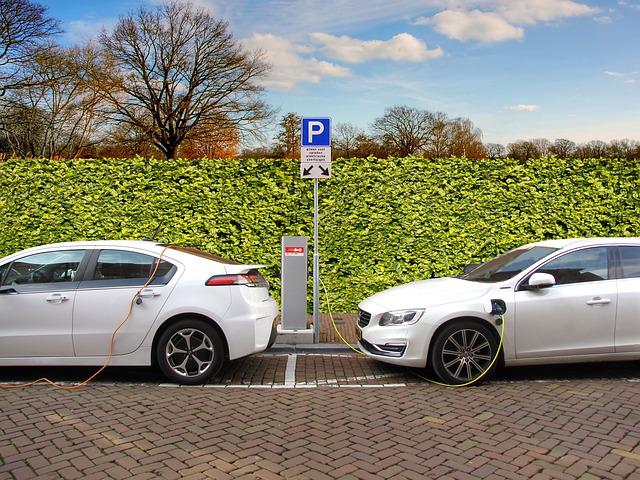
In Part One of this article, we first had a look through the alphabet soup of hybrid types -MHEVs, MEVs, PHEVs – before weighing up one of the big hybrid selling points: their supposed environmental credentials. This time, we’ll look at the economics of hybrid ownership and finish up with some additional considerations. Ready?
Hybrids and costs: pros and cons
Star billing on the hybrid selling point list is the promise of cheaper motoring – yet working out whether they really deliver is far from straightforward!
Pros
- Hybrid cars benefit from certain VED (road tax) benefits compared to non-hybrid vehicles. The rules require some patience to understand. For cars registered on or after 1st April 2017, low emission hybrids pay a reduced rate of road tax in their first year, and then a flat rate of £145 from the second year onwards. This only applies if your vehicle cost less than £40,000 when new. If it was more than £40K, then you have to pay an additional supplement of £335. However, that’s just for the first five years, after which they revert to the sub-£40K rate. Got all that?After you’ve waded through all the different permutations, what you discover is that after the first year, the road tax savings of hybrids are tiny. So although this a pro, it’s not much to write home about.
- Hybrid cars can benefit from substantially lower running costs. Given that less polluting engines are also more efficient, everything we said in the environmental section last time can be recycled here (recycled, geddit?). So, mild hybrids (MHEVs) offer surprisingly solid improvements in fuel economy, with estimates of up to 18% lower consumption. With PHEVs, the savings could be really substantial. Someone who drives a PHEV cautiously within its battery range could potentially buy very little fuel at all. Add in charging from solar panels, and summer driving costs could be almost zero.
- Depreciation costs should be lower. No stats on this one (we did look!), but the general consensus is that hybrids will retain their value more. This is because resale follows the rules of supply and demand. As the article title suggests, at the moment, people can’t get enough of hybrids and that can only help keep your resale value high.
Cons
- Purchase costs are higher. Although this varies from model to model, the RAC reckon on a hybrid premium of around 20%. The comparison is made harder because hybrids often come with other luxury features that you’d anticipate paying more for anyway.
- You may not get the savings in fuel you were anticipating. This is where things get really interesting. A couple of years ago, Car magazine ran a fantastic piece in which over a year of ownership, they compared a hybrid VW Golf GTE with both a GTD diesel and a cheaper R-Line model. You should really check out their article. The managing editor of the magazine concluded that the mpg benefits he saw were so small, it wasn’t worth the hassle of topping up the battery. However, the same article quotes an approximate improvement of 10mpg when comparing the GTE and R-Line, which sounds pretty impressive to us. Things get even more interesting when you add in the results of their sister magazine Parkers, running the same comparisons. With regular charging, one author saw his fuel costs halve. But on good roads (read: fast roads) or over long runs, other journalists saw much more modest improvements.
Verdict
You’ll pay a premium for buying a new hybrid car, though you’ll likely get some other upgrades included in the price. Whether you go on to recoup that cost – and go on to make overall savings – will critically depend on your driving style and usage. Drive a hybrid in exactly the same way as an ICE car, without playing to its advantages, and you end up driving a heavier and possibly even thirstier version of the conventional car. For drivers who commute long distances, or enjoy spirited driving, and hate topping up the battery, a PHEV may offer no running cost advantages. But for anyone outside of those categories, the long-term savings with a hybrid could be considerable.
Other Pros and Cons
Although environmental benefits and running costs are the main selling points for hybrids, let’s quickly mention a couple of other considerations.
Pros
- Hybrids in electric mode are very, very quiet. Swishing silently through town is not only relaxing, but you can look down on non-hybrid drivers in their vulgar noise-mobiles (hey, we’re kidding!)
- In terms of driving experience, you get that pleasing extra electric oomph – depending on the model, this will vary from barely noticeable to savage.
- With plenty of reservations, hybrids can represent a stepping-stone to lower emissions and running costs without having to sell a kidney to buy a fully electric car.
Cons
- The obvious downside is the nuisance and potential difficulty of charging. Now you have two energy sources to top up on, which as we noted, is too much faff for some drivers.
- Hybrids offers no element of future-proofing. In 13 years time, hybrids face the same fate as regular fossil fuel vehicles – which is to say, no new ones will be sold, and your only choice will be an electric jetcopter.
Article is for entertainment only and does not constitute buying advice. The WVS blog covers a wide range of automotive topics, from the contentious to the light-hearted. We are an independent garage specialising in all the VW group marques, including Audi, Volkswagen, Skoda and SEAT. WVS provides services, repairs and MOTs, delivering a main dealer level of care at affordable prices. To book your vehicle in, or for any enquiries, get in touch.
